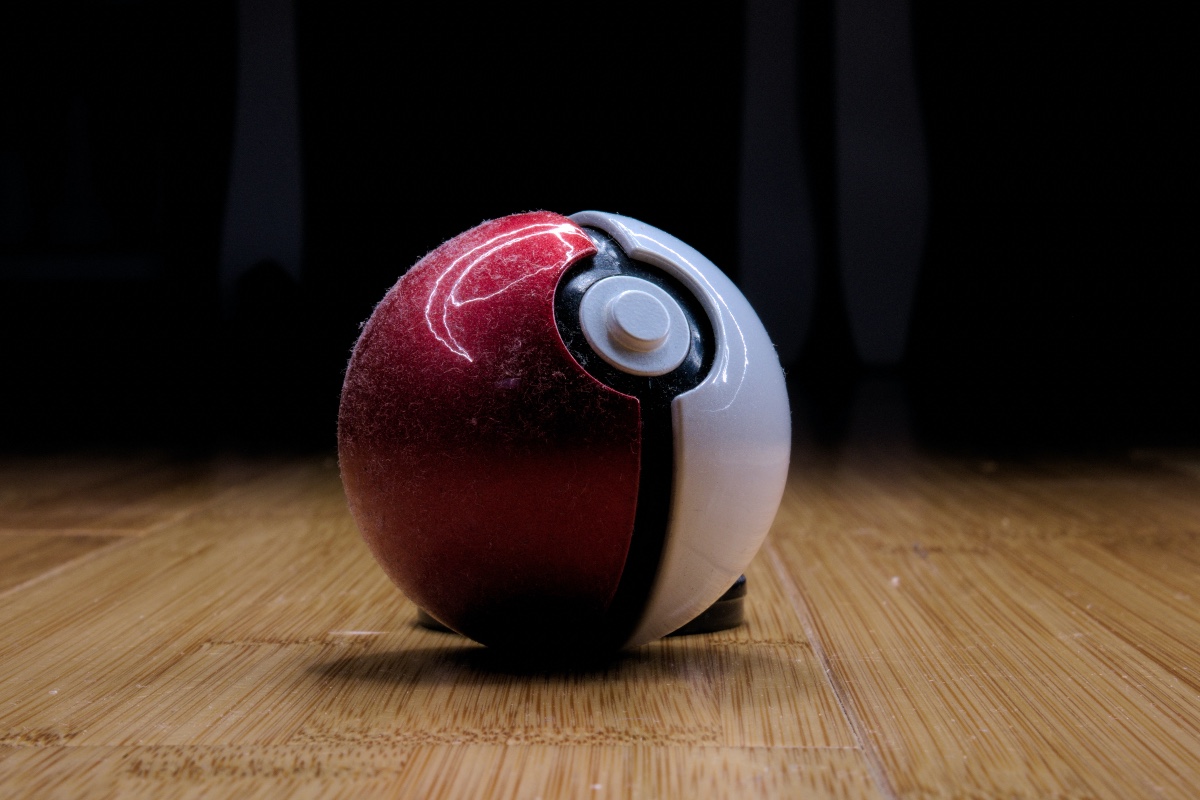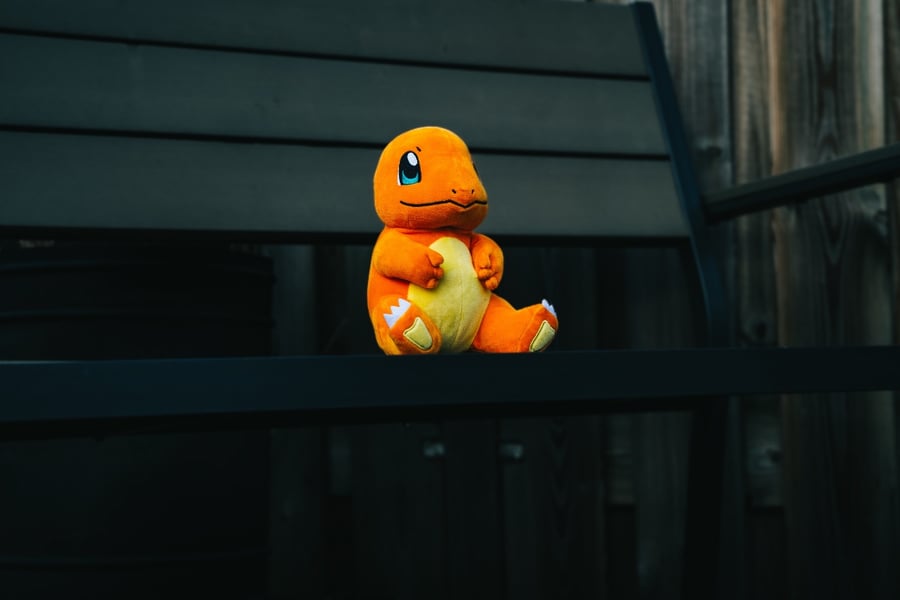The release of the latest giant title to hit Nintendo Switch, Pokémon: The Legend Of Arceus, has been heralded as the playing experience Pokémon fans have awaited for two decades. Set in the past, the game portrays a world before humans and Pokémon got along, or at least, before Pokémon had become comfortable with the prospect of capture for the purposes of battle. For this is what the Pokémon franchise, one of the world’s most beloved and successful, is built on; and it’s a reality those of us who have grown up with the franchise have wrestled with in increasing degrees for a number of years.
In its infancy, this was less problematic. In 1996 Pokémon first entered the world as a simple Gameboy game, setting its player the task to complete their Pokédex by capturing all 151 Pokémon in the region of Kanto. On their journey, players could use their Pokémon to progress through the world, fighting off other Pokémon and Pokémon trainers alike. In the constraints of an 8-bit world at the relative dawn of video gaming there was no real need to question the morality of this. However, since then we have been introduced to in excess of 800 Pokémon, seen in stadiums, across continents, on camera, in film and even working as detectives.
The more we see them the more incredible we realise Pokémon truly are. Pokémon began as monsters, but have evolved into magical creatures who quite literally embody and control the natural world around them. They are credited in their various forms as being responsible for the rain that falls to creation itself. As time goes on, the notion of controlling them for the entertainment of humankind becomes even more jarring.
The Legend Of Arceus is the latest addition in a string of increasingly noticeable attempts to add some sort of moral compass to the world of Pokémon, to backfill the canon and address why players have to catch ‘em all, not just tell us we have to. The franchise is so old, so vast and so engrained in the lives of real people that it has transcended entertainment and become something more. Yes, whether it realises it or not, Pokémon has been around long enough to question its own existence.
It’s easy to assume this is a byproduct of a human population increasingly aware of its problematic relationship with the environment. The implications of animal cruelty inherent in Pokémon – which is essentially cockfighting with magic and a side of poaching – have always been problematic, but they become increasingly so in today’s cultural climate.
The thing is, the resulting impression of Pokémon’s search for meaning in its own existence isn’t one of reconciling humanity’s impact on the environment, but searching for our purpose within it. The further Pokémon goes in validating the relationship between humans and Pokémon, the more out role becomes, well, superfluous.
Before we delve any further, it’s important you understand that I fucking love Pokémon. I always have and I always will. I was hooked from the moment I ran into my parents bedroom as a five-year-old and happened upon an enormous Pikachu thundering across the television in the now seminal episode, “Island of the Giant Pokémon” (Season one, Episode 17).
Love Music?
Get your daily dose of everything happening in Australian/New Zealand music and globally.
From that moment well into my early teens virtually every surface of my bedroom was covered in some sort of tribute to the pocket monster. Posters dominated walls and figurines lined my shelves, delicately arranged to evoke the blood-pumping ferocity of battle. I was very cool and had many friends.
I spent much of my first decade in this world attempting to escape it, be it through the 8-bit lens of personal gaming or the deftly 90s-chic animation of a stunning and oddly well-organised land full of people who ate “doughnuts” shaped in little white triangles. I realised much later in life that this land was just Japan. The doughnuts were onigiri. There’s probably a whole other essay I could write about the odd Westernisation of Asian culture in that first series before I even get to unpacking Brock’s character.
I designed my own brand of collectible monster – Monnys – part in tribute, part in an effort to expand on and exist deeper in a world of magnificent creatures with fantastical powers. Creatures who did not for a second question the barbarism of humans who persist in tracking, hunting and capturing them in uncomfortably small balls for the purposes of battle. Nay. They welcomed it. I could also sell my one-of-one Monnys character cards to the neighbour for 20 cents a pop which, after a half-day’s work designing, could buy me a Kinder Surprise. In hindsight this was an incredible margin for such a derivative product.

Roméo A./Unsplash
The reason for explaining this is that I am not alone. Pokémon captured the hearts and imaginations of millions across the world from toddlers to teenagers. It hasn’t stopped since. In fact, it is the highest grossing franchise in the world.
Since Pokémon Gold and Silver, I have played every Pokémon game ground into existence by The Pokémon Company. I even have the famous Gameboy line, “everything not saved will be lost” (usually preceded by, “are you sure you want to quit?”) tattooed above my right knee. While this was more out of drunken hubris than die-hard allegiance, I’m proud to rewrite history for the purposes of this argument. And this, my friends, is the issue. Like the background of my hilarious and without-context pseudo-sophist leg tattoo, revisionist history is precisely what I’ve found my beloved franchise to be riddled with.
Like most perpetrators it is in an effort to deal with systems put in place decades ago, systems which have aged poorly. What started as “gotta catch ‘em all!” has become “let’s strive together to create a better world, where people and Pokémon live in harmony and work together as partners.”
A lot has changed. For one, the NPCs have become far more verbose. What hasn’t changed is that whether you use your Pokémon for power – as the games’ villains often do – or work with them side by side, one half of the partnership spends its time in little balls waiting to be sent into battle while the other gallivants across the land.
Why bother trying to change the narrative at all? It could be argued the answer is simple: to keep the pretext of the game palatable to evolving values and continue selling units. I wager the truth runs deeper. The units are selling regardless. That’s where things become interesting. When you understand that humankind has and always had such affinity with the world of Pokémon, despite its inherent issues, you have to wonder what that says about us. When you wonder long enough, you realise Pokémon’s shifting narrative is more an attempt to console an existing fanbase than to find a new one. I think about Pokémon a lot.
Of course, any casual fan would note that “you’re my best friend” features predominantly in the original English Pokémon theme song. Pokémon were always treated with love and respect from the get go. In the early days of the franchise, it wasn’t so much the fact that residents of Kanto disliked or belittled their Pokémon that was an issue, as much as it was the assumption of their complicity. It was merely stated that Pokémon enjoyed being, if not expected to be, captured; in the hope of discovering their true strength courtesy of a trainer with some sort of messiah complex.
We were told people and Pokémon live in harmony but how we got there was never explicitly illustrated, or whether Pokémon agreed. I mean, we still had to fight them until they had a time amount of health points left, usually put them to sleep or paralyse them, then throw a good few Pokeballs to actually capture them. You don’t put up that level of resistance if you’re in on the bit, if this were Hollywood it’d be a hashtag.
At its inception the game was merely that, a game, it was purely entertainment and existed in the confines of a gaming platform so restricted it didn’t need to offer anything more. Sure in the anime it took Ash a few episodes to rein Pikachu into gear, hell it took him a few seasons to sort Charizard out. Team Rocket were the bad guys who only cared about using the power of Pokémon to get what they want, but there was no time dedicated to exploring whether the Pokémon even wanted to hang out with the good guys all of the time. More to the point, no one cared.
A huge part of the fantasy of owning a Squirtle or Charmander was that they were devoted to you, they were your starter Pokémon who stuck by your side from the start of your adventure. I guess that also extended to a Bulbasaur if you displayed signs of early-onset masochism.
Thing is, the implication of this devotion is obedience. It’s a fixation on control, an obsession with taming power and chasing alpha superiority that skyrocketed out of 80s Wall Street machismo and straight into Viridian City. There’s no “I want to be the very best, like no one ever was” in team.
I want to believe my Pokémon love me. I have seen evidence from Kanto to Unova that it’s possible, but the more I see of the world of Pokémon – the more I understand about the monsters themselves – I just can’t comprehend why they need or want us around. We can’t breathe fire, make boulders fall from the sky, take flight, scale waterfalls or bend things with our mind.
You could argue that perhaps human technology, the same that improves our quality of life, also improves the quality of life for Pokémon. You would be wrong. In Pokémon world we use the Pokémon to power our tech too. The only time an alternate power source is shown to exist in the games, it is a wind farm. That wind farm ends up being a front for a gang vying to capture two demigod Pokémon in order to control time and space. People totally suck. At best we kind of just exist to mooch off the abilities of Pokémon. If this were Entourage, we would be Turtle. Of course, in addition to mooching from Pokémon, we also lower their health points, paralyze them and throw little balls to see if we can catch them.

Don H/Unsplash
The Pokémon company have had to backfill and backpedal to shift that narrative and give meaning to the player’s existence lest we be confronted with our own monstrous nature – a species desperately bending, clamouring and contending with the natural world to both improve and validate its own existence.
The Legend Of Arceus – a modern, open world epic with all the weight of adding history to a franchise millions have grown up with – shows us for the first time what the world looked like before Pokémon trainers. And the truth is bleak. I’ve grown up being led to believe Pokémon wanted to partner with us to become stronger and live in a better world. But now I’ve seen what the world looked like before, I realise there is no conflict between Pokémon without human intervention. The only thing a wild Pokémon attacks in The Legend Of Arceus is player one.
The delicate food chain that exists in the real world does not extend to the Pokémon universe. Raging, monstrous dragon types roam the fields next to sentient berries without thinking to snack or attack just because they can. Hell I even saw a bird having a conversation with a caterpillar. The implication of which is that, in the modern age, Pokémon only want or need to become battle-hardened because we made it so. Pokémon only need or want to partner with us because we have forced them to exist in a world we built. Turns out they were much happier before.
The more we learn about the world of Pokémon – through time and the gaming community’s desire for lore upon lore – the more the meaning Pokémon tries to ascribe to humanity’s existence seems pointless. It’s not only that our existence seems to have had an irreversible impact on the world over time, for better or worse, it’s that the world can exist perfectly and perhaps achieve more without us in it. The Pokémon are stronger, faster, smarter and ultimately better than the player. Humans can’t even exist in certain environments without the help of Pokémon. So why do they need us to help them become better? Humanity only exists in Pokémon for the purpose of allowing its player to experience the world at all. I find this deeply philosophical.
The lived experience of growing up passionate about a franchise while you and it simultaneously wrangle with the problematic nature of the pretext set 26 years ago is practically Nietzschean. It is explained simply using the idiom: “existence is meaningless, fuck it, Gengar use Shadow Ball”. I say practically Nietzschean because of course, in the world of Pokémon, God isn’t dead. It might actually be worse. God is called Arceus and we can capture it after depleting its health, paralysing it and throwing a little ball. I named my God Craig.
The player’s key purpose in The Legend Of Arceus is to capture Pokémon in order to understand them. The only way to help a less civilised version of humanity understand the world that exists outside their own walls is to experience it – sound familiar? Maybe that’s enough? It’s gaming, and like all games it’s escapist. Like few others, it’s existential. We suspend our disbelief because it exists in a universe without consequence and so it’s ok to not ask why. It’s the same reason it was apparently ok to shoot a Russian soldier in Call Of Duty all the way back in 2015.
The truth is that the world loves Pokémon more and more because it’s easier to explore and invest in a world where despite our destructive behaviour the natural world welcomes our forced dominance with open arms. We don’t need to be there, but hell, while we are we might as well walk every inch, see every sight and catch every damn thing that we can. In that world even God’s on our team.



































